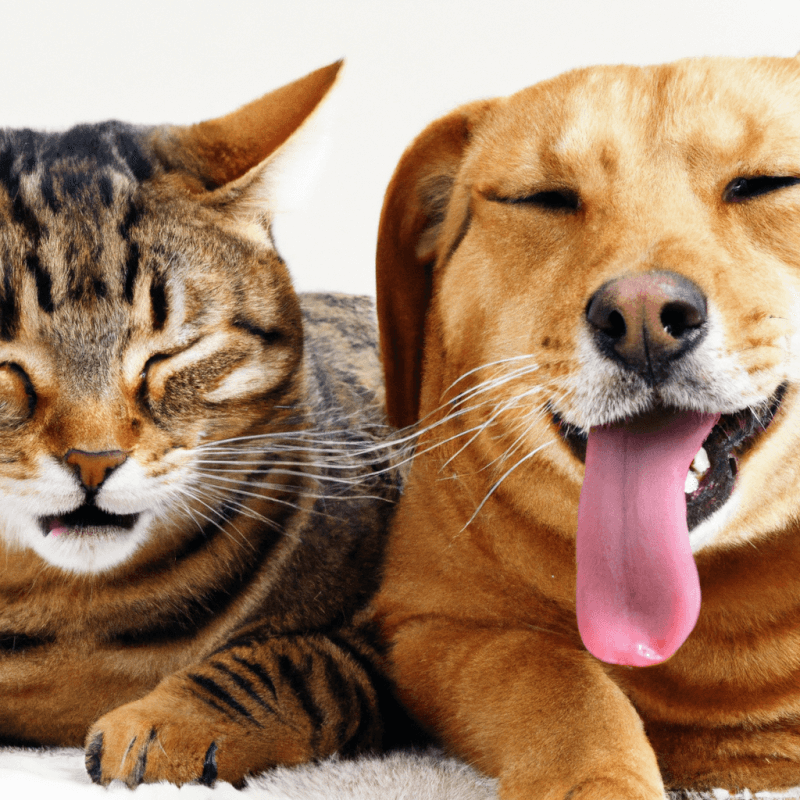Taking care of your beloved pet involves more than just regular feeding and occasional walks. To ensure the health and well-being of your furry friend, it’s crucial to make regular visits to the vet a priority. But how often should you actually schedule these visits? This article will provide you with some valuable insights on the ideal frequency for taking your pet to the vet, ensuring that you’re providing them with the best care possible.

Determining the Frequency of Vet Visits
When it comes to taking care of our furry friends, one of the key aspects is ensuring that they receive regular veterinary care. But how often should you take your pet to the vet? This question depends on several factors, including the age and life stage of your pet, their overall health condition, and their breed or genetic predispositions. In this article, we will explore these factors in more detail, discuss the importance of regular vet check-ups, provide common guidelines for different types of pets, and offer tips for a successful vet visit. Let’s dive in!
Ready for Cat Trivia?
Test your knowledge about cats!

Factors that Influence How Often a Pet Should See the Vet
Age and Life Stage of the Pet
The age and life stage of your pet play a significant role in determining their veterinary needs. Puppies and kittens, for example, require more frequent vet visits compared to adult or senior pets. This is because puppies and kittens need to receive a series of vaccinations to protect them against various diseases. Additionally, they may require more frequent check-ups to monitor their growth, development, and overall health.
Adult and senior pets, on the other hand, may not need vaccinations as frequently, but they still benefit from regular vet visits to ensure their overall health is maintained. As pets age, they may be more prone to certain health conditions, such as arthritis or dental disease. Regular check-ups allow the veterinarian to catch any potential issues early and provide appropriate care.
Overall Health Condition
The overall health condition of your pet is another crucial factor in determining the frequency of vet visits. If your pet has a chronic health condition or a history of medical issues, they may need more frequent visits to monitor their condition, adjust medications if necessary, or perform routine tests to ensure their well-being.
On the other hand, if your pet is generally healthy and has no underlying medical concerns, they may be able to follow a less frequent vet visit schedule. However, it is essential to remember that even seemingly healthy pets should still have regular check-ups to detect any potential issues that may not be immediately visible.
Breed and Genetic Predisposition
Certain breeds and species are more prone to specific health conditions or genetic disorders. For example, some dog breeds are more susceptible to hip dysplasia or certain types of cancer. If you have a breed with known health risks, your veterinarian may recommend more frequent visits to monitor for these conditions or start preventive measures early.
Additionally, if your pet has a known genetic predisposition to certain diseases, such as certain types of heart disease or kidney problems, regular vet visits are essential to catch any signs of these conditions and provide appropriate treatment.
Importance of Regular Vet Check-ups
Now that we’ve discussed the factors that influence how often a pet should see the vet, let’s delve into the importance of regular check-ups.
Prevention and Early Detection of Health Issues
Regular vet check-ups allow your veterinarian to assess your pet’s overall health and detect any potential health issues before they become significant problems. During these visits, the vet will perform a thorough physical examination, which includes checking vital signs, examining the eyes, ears, mouth, and skin, and listening to the heart and lungs. This examination helps identify any abnormalities or early signs of disease, enabling prompt intervention and treatment.
Vaccinations and Parasite Control
Vaccinations are a vital part of preventive pet care. They protect your pet against various diseases, some of which can be life-threatening. During a vet visit, your veterinarian will review your pet’s vaccination history and administer any necessary vaccinations to ensure your pet is adequately protected.
In addition to vaccinations, regular vet visits also allow for proper parasite control. Your veterinarian will discuss and prescribe appropriate flea, tick, and heartworm preventives, keeping your pet safe from these pesky parasites.
Establishing a Relationship with the Veterinarian
Regular vet visits help establish a strong relationship between you, your pet, and your veterinarian. This relationship is crucial because your veterinarian will have a detailed understanding of your pet’s health history, preferences, and any specific concerns you may have. With this information, your veterinarian can provide tailored advice and treatment options to keep your pet healthy and happy.
Common Guidelines for Different Types of Pets
Now that we understand the importance of regular vet check-ups, let’s explore some common guidelines for different types of pets.
Dogs – Frequency of Veterinary Visits
For dogs, it is generally recommended to have an annual vet visit. However, this can vary depending on factors such as age, breed, and overall health. Puppies may require more frequent visits initially for vaccinations and deworming, while senior dogs may benefit from more frequent check-ups to monitor age-related health concerns.
Cats – Frequency of Veterinary Visits
Similar to dogs, cats also benefit from annual vet visits. However, cats are known to hide signs of illness, making regular check-ups even more crucial. Additionally, cats may require more frequent visits if they have chronic conditions, such as diabetes or kidney disease.
Small Mammals (Rabbits, Guinea Pigs, etc.) – Frequency of Veterinary Visits
Small mammals like rabbits and guinea pigs should also have regular vet check-ups. Depending on their age and health condition, they can benefit from semi-annual or annual visits. These visits allow the veterinarian to monitor the small mammal’s dental health, weight, and overall well-being.
Birds – Frequency of Veterinary Visits
Birds should have an annual vet visit, but some species may require more frequent visits based on their individual needs. Regular check-ups allow the vet to assess their nutritional status, monitor their feathers and beaks, and detect any signs of illness or disease.
Reptiles – Frequency of Veterinary Visits
Reptiles have unique veterinary needs, and the frequency of their visits may vary depending on the species. While some reptiles may only require annual check-ups, others, like bearded dragons or turtles, may need more frequent visits. These visits help ensure proper husbandry practices, monitor growth, and address any health concerns.
Fish – Frequency of Veterinary Visits
Unlike other pets, fish do not typically require regular vet visits. However, if you notice any signs of illness, such as changes in behavior, appetite, or appearance, it is essential to consult a veterinarian specializing in fish health to determine the appropriate course of action.

Signs that Indicate a Visit to the Vet
In addition to regular check-ups, there are certain signs that indicate a visit to the vet is necessary, even if it’s not scheduled. These signs may include:
Changes in Appetite or Weight
If your pet suddenly loses their appetite or experiences unexplained weight loss or gain, it could be a sign of an underlying health issue. A vet visit is crucial to identify the cause and provide appropriate treatment.
Abnormal Behavior or Mood
Behavioral changes, such as aggression, anxiety, or excessive lethargy, may be indicators of physical discomfort or illness. Consulting with a veterinarian can help determine the cause and provide necessary interventions.
Difficulty Breathing or Abnormal Coughing
Respiratory issues, including difficulty breathing or persistent coughing, should not be ignored. These symptoms may indicate respiratory infections, heart problems, or other serious conditions that require immediate veterinary attention.
Unusual Lumps or Bumps
If you notice any unusual lumps, bumps, or growths on your pet’s body, it is essential to have them examined by a veterinarian. Early detection and treatment can significantly improve the outcome for your pet.
Persistent Vomiting or Diarrhea
Frequent or persistent vomiting or diarrhea can lead to dehydration and indicate an underlying gastrointestinal issue. A veterinarian can determine the cause and provide appropriate treatment to alleviate your pet’s discomfort.
Urinary Problems
Difficulty urinating, blood in the urine, or increased frequency of urination are all signs of potential urinary tract issues. A prompt visit to the vet is crucial to identify and manage these conditions.
Skin and Coat Issues
Persistent itching, hair loss, rashes, or skin infections may indicate underlying allergies, parasites, or other dermatological conditions. A veterinarian can diagnose the issue and provide the necessary treatment.
Dental Problems
Bad breath, excessive drooling, difficulty eating, or swollen gums may signify dental problems, including periodontal disease. Regular dental check-ups and cleanings by a veterinarian help maintain your pet’s oral health.
Tips for a Successful Vet Visit
Now that we know when to schedule a vet visit, let’s discuss some tips for ensuring a successful visit.
Scheduling an Appointment
It is always recommended to schedule an appointment before visiting the vet. This ensures that the clinic is prepared for your pet’s arrival and minimizes waiting time.
Preparing for the Visit
Before heading to the vet, ensure your pet is comfortably secured in a carrier or on a leash. Additionally, double-check that you have all the necessary supplies, such as waste bags, treats, or toys, to keep your pet calm and comfortable during the visit.
Taking Necessary Documents and History
Bring any relevant documents, such as vaccination records, previous medical history, or insurance information, to the vet visit. This information helps the veterinarian assess your pet’s health and provide appropriate care.
Observing and Describing Symptoms
During the vet visit, pay close attention to your pet’s behavior and note any changes or symptoms you have observed. Provide detailed information to the veterinarian as it can assist in diagnosing the problem accurately.
Discussing Concerns with the Vet
If you have any specific concerns or questions, make sure to discuss them with the veterinarian. A thorough conversation helps you understand the health of your pet better and ensures any concerns are adequately addressed.
Following the Veterinarian’s Recommendations
After the vet visit, follow any recommendations or advice provided by the veterinarian. This may include administering medication, adjusting diet, or scheduling follow-up visits. Adhering to their instructions ensures your pet receives the best care possible.

Cost Considerations and Pet Insurance
As pet owners, we must also consider the cost implications of veterinary care. While it is impossible to predict every expense, understanding the costs involved can help prepare for potential veterinary bills.
Examining the Costs of Veterinary Care
Veterinary costs encompass a range of services, including routine check-ups, vaccinations, preventive medications, diagnostics, and emergency care. Prices may vary based on geographical location, the specific veterinary practice, and the treatment required. It is advisable to research average costs in your area and consider your budget when making decisions about your pet’s healthcare.
Benefits of Pet Insurance
Pet insurance offers financial protection for unexpected veterinary costs. It can help alleviate the financial burden of emergency treatments, surgeries, or long-term medical care. Before choosing a policy, carefully review the coverage options, exclusions, deductibles, and reimbursement rates to find the best fit for your pet’s needs.
Factors to Consider When Choosing Pet Insurance
When selecting pet insurance, consider factors such as age, breed, pre-existing conditions, and potential future medical concerns. Understanding the policy’s coverage for routine care, hereditary conditions, and chronic illnesses is essential. Additionally, read customer reviews and compare different plans to make an informed decision.
Importance of Emergency Vet Care
Accidents and emergencies can happen to pets at any time, so it is crucial to understand the importance of emergency vet care.
Recognizing Emergencies and When to Seek Immediate Vet Assistance
Knowing the signs of an emergency and when to seek immediate veterinary help can be lifesaving for your pet. Symptoms such as severe injuries, difficulty breathing, seizures, sudden collapse, or ingestion of toxic substances require immediate veterinary attention. Keep the contact information of 24-hour veterinary hospitals readily available in case of emergencies.
Having an Emergency Plan in Place
Creating an emergency plan is essential to maintain your pet’s health and well-being in critical situations. Know the closest emergency veterinary hospitals, assign someone responsible for transporting your pet if you are unable to do so, and keep an emergency kit with essential supplies readily available.
Knowing the Location of 24-Hour Veterinary Hospitals
Research and familiarize yourself with the location of 24-hour veterinary hospitals near your home or any place you frequently visit with your pet. Having this knowledge ensures you can quickly access emergency care whenever the need arises.

The Role of the Pet Owner in Maintaining their Pet’s Health
While veterinary care is essential, the role of the pet owner in maintaining their pet’s health is equally important.
Providing a Balanced Diet
Feeding your pet a balanced and nutritious diet goes a long way in promoting their overall health. Consult your veterinarian to determine the appropriate type and quantity of food for your pet’s specific needs.
Maintaining Regular Exercise
Regular exercise is vital for pets to maintain a healthy weight, muscle tone, and mental well-being. Make time for daily exercise routines that are suitable for your pet’s age, breed, and physical abilities.
Grooming and Hygiene Practices
Regular grooming practices, such as brushing your pet’s coat, trimming their nails, and cleaning their ears, contribute to their well-being. These activities help maintain their hygiene and can provide an opportunity to detect any skin issues or abnormalities.
Administering Preventive Medications
Compliance with preventive medications, such as flea and tick preventives, heartworm preventives, and deworming treatments, is crucial for your pet’s health. Follow your veterinarian’s recommendations and ensure your pet stays protected from parasites.
Monitoring for Any Changes or Abnormalities
As a pet owner, it is vital to observe your pet closely for any changes in behavior, appetite, or physical appearance. Early detection of abnormalities can lead to prompt veterinary intervention and better treatment outcomes.
Final Thoughts
In conclusion, determining the frequency of vet visits depends on various factors, including the age, health condition, and breed of your pet. Regular check-ups are essential for preventive care, early detection of health issues, and establishing a strong relationship with your veterinarian. By staying vigilant and following the guidelines provided, you can ensure the well-being of your beloved pet. Remember, consulting with a veterinarian for personalized advice is always the best approach. So don’t hesitate to be proactive and take the necessary steps to keep your pet happy and healthy for years to come!



